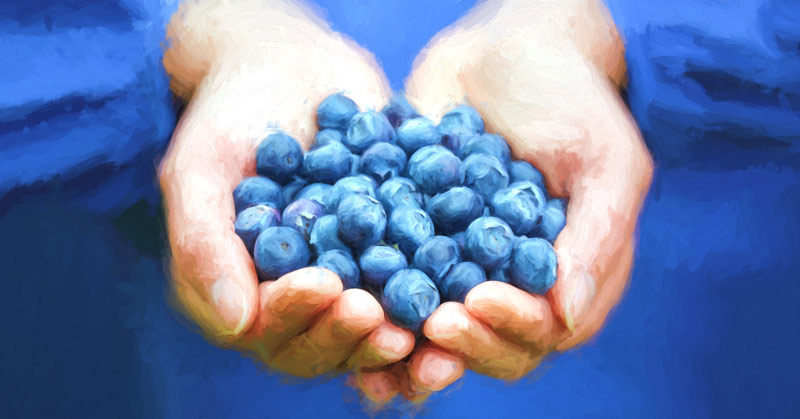
Every day, a wide range of chemical reactions take place in our bodies. Some of the most important ones create energy—energy we require to stay alive. These reactions often give off byproducts. Some can be toxic and damaging to the body.
One type of byproducts is free radicals. A specific type, Reactive Oxygen Species (ROS), is a natural result of the metabolization of oxygen for energy. When we create greater amounts of energy, such as in exercise, we will produce more of these ROS. The ROS produced during exercise may cause fatigue and damage muscles—hampering performance and delaying recovery.
Fortunately, athletes, nutritionists, and coaches are aware of this increase in ROS during and after exercise. They often use antioxidant supplements to improve performance and recovery. The American College of Sports Medicine (ACSM) reports that over 50% of elite endurance and male collegiate athletes regularly take antioxidant supplements. This practice is not limited to athletes. Approximately 20% of non-athletes also regularly use antioxidant supplements.
Since ROS are produced during exercise, it seems logical that antioxidant supplementation could offset this increase, thereby reducing acute fatigue and decreasing recovery time. Is this true?
Muscle Damage and Antioxidants
This is a difficult question to answer. We know intuitively that exercise can cause muscle damage. I’m sure we have all experienced delayed onset muscle soreness (DOMS). We also know that eccentric exercise—in which the muscle is contracting while simultaneously lengthening—is the type of exercise that likely creates the greatest amounts of muscle damage.
Because of this, researchers often use eccentric exercise to induce muscle damage. That enables them to measure the effects of antioxidant supplementation on recovery. For example, this study took a group of healthy women aged 19–31 through eccentrically loaded bicep exercises over a four-day period. Half the group took an antioxidant supplement containing 400IU Vitamin E, 1000mg vitamin C, and 90ug selenium. The other half took a placebo.
The researchers measured levels of creatine kinase (CK)—a marker of muscle damage—in the subjects following the exercises. They also poked the subjects’ muscles to see how sore they were. The group taking the supplement had much lower CK levels during the recovery period, and this difference was greatest at the end of the four-day period. Muscle soreness was also lower in the supplementation group after two and three days as well.
These results indicate that antioxidant supplementation is useful for improving recovery from hard exercise. However, this study has a couple of problems. The group was relatively small, and the subjects had not undergone resistance training for 12 months. This not only demonstrates the importance of understanding the makeup of research groups but also underlines the difficulty researchers may encounter in recruiting appropriate subjects. Many athletes are training too hard to take part in research like this. Finally, the damaging effects of eccentric exercise could be much lower in trained athletes. To have results worth reporting, researchers often use non-athletes.
Oxidative Stress Responses
Fortunately, there is research among habitual exercisers, like this one conducted among professional basketball players in Spain. The players either took a placebo or an antioxidant supplement containing vitamin E, vitamin C, and beta-carotene, this time for 32 days. During that time, the subjects played one or two games a week along with daily training sessions. The results showed that the athletes in the supplement group had much lower levels of oxidative stress, allowing us to conclude that antioxidant supplementation does reduce oxidative stress levels. The same is also true for regular aerobic exercise.
These studies suggest that taking antioxidants might reduce the oxidative stress response to exercise. Is this a good thing? Intuitively, we would say yes. Less muscular and cellular damage means better/faster recovery, which in turn means we can either do more training or train at a higher level. But is this actually the case? One issue to consider is that one of the mechanisms by which exercise improves performance is that the ROS themselves drive many positive adaptations to exercise. If we remove or dampen the ROS response to exercise, we often see a reduction in adaptation to the training dose.
For example, in this study, the researchers examined the effect of antioxidant supplementation on improving insulin sensitivity in type 2 diabetics. They found that only those who did not take supplemental antioxidants showed improvements in insulin sensitivity. As a result, exercise lost much of its positive effects in this group if they consumed high-dose antioxidant supplements. While this finding doesn’t influence athletes—they generally don’t exercise for insulin sensitivity reasons—it could impact how much exercise can improve health outcomes.
Effects on Athletic Parameters
What about the effects on athletic parameters? This hasn’t been extensively studied. Some research shows that high doses of vitamin C can reduce improvements in VO2 max in endurance athletes. In this study, researchers gave subjects either 1g of vitamin C or a placebo every day over an eight-week training block. Training improvements were reduced in the supplement group compared to the placebo. However, one issue (aside from the low sample size) is the fact that VO2max isn’t an event. While we might assume that greater improvements carry over to improvements in race performance at 400m+, the data isn’t clear. What would be better are studies that examine the effect of antioxidant supplementation on race performance—and those are very scarce!
Interestingly, some studies indicate that lower amounts of antioxidants could be more beneficial than higher doses. In this review article, the authors found that, out of 12 eligible studies, 8 showed no effect of antioxidant supplementation. Two showed that antioxidant supplementation reduced performance (i.e. was ergolytic), and two showed that it improved performance (i.e. was ergogenic).
However, in the non-effective or ergolytic trials, the doses of vitamins C and E were much higher than in the ergogenic trials. A typical daily vitamin C intake in the ergogenic trials was between 200m and 400mg; in the ergolytic trials it was generally around 1000mg. The 200-400mg level is easily achievable through appropriate food. For example, a large bell pepper and 100g of kale contain 300mg of vitamin C. Conversely, consuming 1000mg through food alone is much harder, and would likely rely on a supplement to reach that level.
These effects are further illustrated in another study, although again the focus is on endurance athletes. In this study, participants took either 1000mg vitamin C or blackcurrant juice (containing 15mg vitamin C) each day for three weeks before a 5K time trial. The results indicated that vitamin C supplements appeared to reduce running speed and performance, and also led to an increase in inflammatory markers. The blackcurrant juice group didn’t have those effects.
Conclusions
What does all this mean? We know we need a certain amount of oxidative stress to adapt to exercise and improve from it. If we are too good at recovering, we dampen this oxidative stress response and, therefore, underadapt. One potential cause could be high-dose antioxidants. Early research in this field supports this conclusion. It seems far more prudent to get the majority of our antioxidants from “real” food sources. These sources contain lower doses of antioxidants and a wide range of other healthful compounds, including flavonoids that likely work synergistically with the more recognized antioxidants. The issue here is finding foods high in these nutrients, especially when faced with mineral depletion in soils.
Another aspect could be the timing of the antioxidant dose. Since the majority of oxidative stress occurs during and directly after training, it might not be a good idea to take an antioxidant supplement or other vitamin tablets at this point. On the other hand, consuming food is likely to be fine. So there is no need to avoid fruits and vegetables immediately after exercise. However, in the case of poor food availability, such as travel or caloric restrictions, low-dose antioxidant supplementation might be worthwhile to support normal nutrient intakes.
Please share so others may benefit.
[mashshare]

